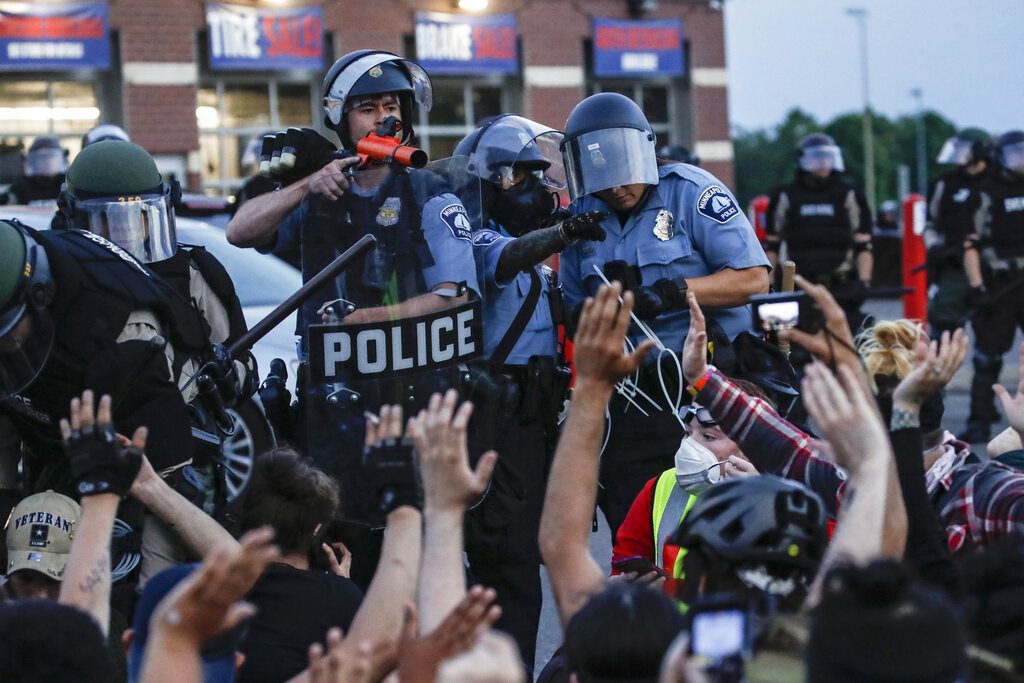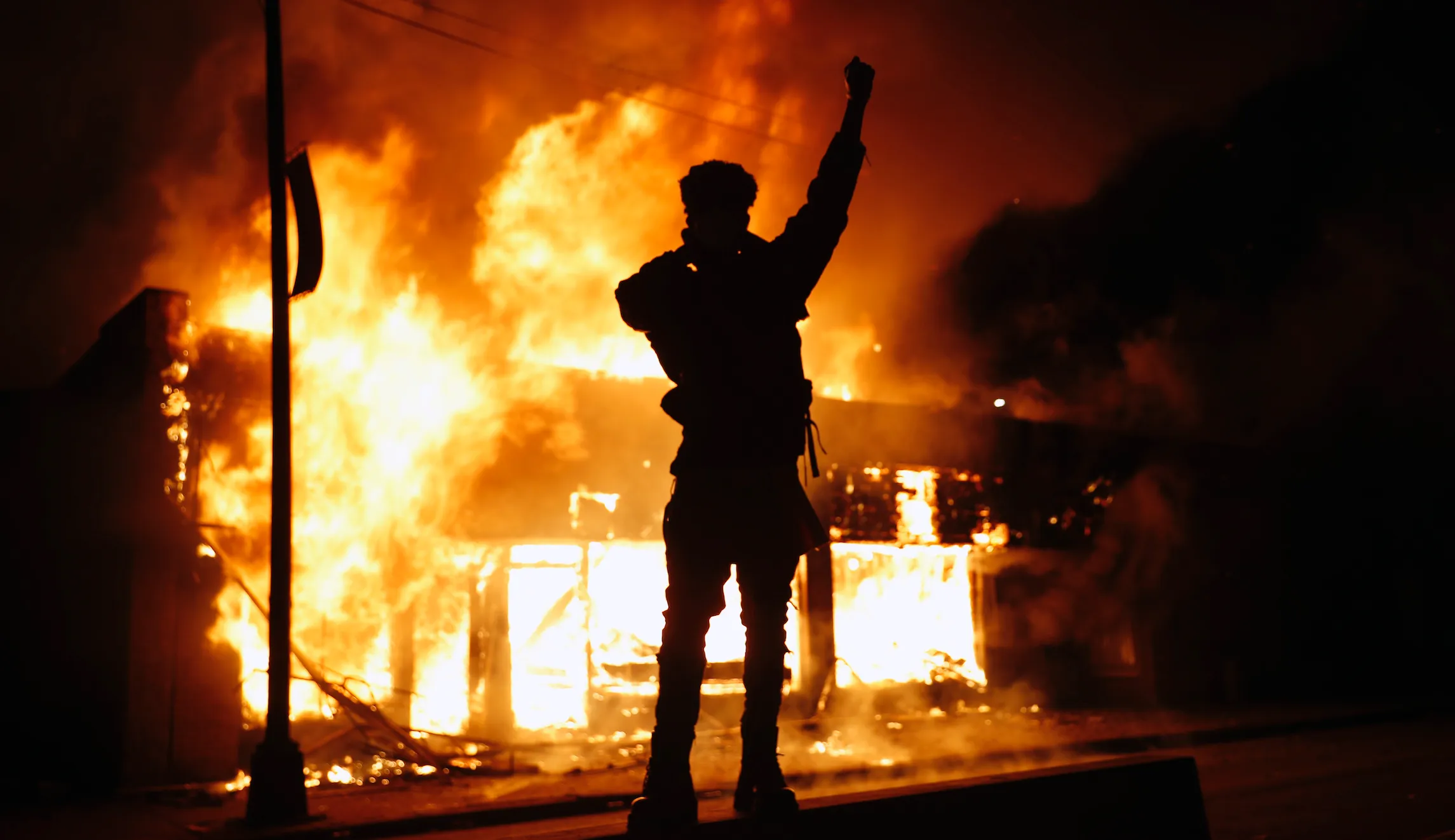A man who set a deadly fire in a Minneapolis pawn shop during the 2020 George Floyd riots was spared a murder charge and sentenced to just 10 years after federal prosecutors invoked Martin Luther King Jr. and asked the judge to show leniency.
Montez Terriel Lee, 26, pleaded guilty to a single count of arson and was sentenced earlier this month to 10 years in federal prison — much less than the 16 1/2 to 20-year punishment outlined in the sentencing guidelines.
Court documents show that Lee admitted he burned down the Max It Pawn Shop on May 28, 2020, the same night rioters set the Minneapolis Third Precinct building on fire following Floyd’s death at the hands of since-convicted police officer Derek Chauvin.
A YEAR LATER, DON’T SWEEP CAPITOL RIOT UNDER THE RUG
Two months after the fire, the charred remains of 30-year-old Oscar Lee Stewart were found in the rubble. Although Stewart’s death was attributed to the fire in the prosecutor’s sentencing memo, he was not charged with it.
Former federal prosecutor Neama Rahmani told the Washington Examiner that Lee could have been looking at a murder charge and a life sentence.
“It could have been tried as a capital case,” Rahmani, president of West Coast Trial Lawyers, said. “Even if conduct isn’t charged under the sentencing guidelines, any relevant conduct can be considered by the sentencing judge in fashioning an appropriate sentence. Any time there is a felony committed — and arson is a felony — and a death ensues, that’s homicide. … It doesn’t matter that just the arson was charged because someone died as a result. It’s a murder case.”

Lee, who was wearing a mask, was caught on camera pouring liquid out from a metal container throughout the pawn store. The video then cuts to outside the pawnshop and shows the building burning and Lee holding up his fist in defiance. The man taking the video says, “Oh s***, you really did it!”
A second video begins with Lee standing in front of the pawnshop as it burns. Someone is heard asking, “What you do, Tez?” with Lee responding, “F*** this place. We’re going to burn this bitch down!”
A third video shows Lee with a group of men joking about restaurants they are going to “hit” next. It then cuts to a cellphone recording that shows the looting of the pawnshop, according to an affidavit by Laine Sellner, a special agent with the Bureau of Alcohol, Tobacco, Firearms, and Explosives, who was given the videos by an informant.
In a sentencing memo signed by acting U.S. Attorney W. Anders Folk and Assistant U.S. Attorney Thomas Calhoun-Lopez, prosecutors praised Lee for his “candor” and argued that he should be given a lighter sentence because he burned down a commercial building and did not commit the offense for personal gain. Though prosecutors admitted that when Lee raised his fist in defiance, it was “terribly misguided, and his actions had tragic, unthinkable consequences,” they also thought Lee “[appeared] to believe that he was, in Dr. King’s eloquent words, engaging in ‘the language of the unheard.'”

King, who preached nonviolence and advocated for social justice, told journalist Mike Wallace in a 1966 interview, “We’ve got to see that a riot is the language of the unheard.”
In handing down the sentence, Judge Wilhelmina Wright told Lee he was “more than the person who celebrated [his] actions on social media as if there was anything worth celebrating. You are more than the person that destroyed that business by fire. You are more than the person who set that fire that killed a man.”
Wright added that Lee, unlike Stewart, had a future.
CLICK HERE FOR MORE FROM THE WASHINGTON EXAMINER
“So while there are no excuses for your actions on May 28, 2020, you have a chance to move forward and live a productive life.”
Rahmani called the sentence “not normal.”
“Normally, prosecutors go as aggressive as they can,” he said. “Maybe there were some mitigating factors in this case. The bottom line is that it looks like he didn’t know someone was in there. That’s not a legal defense. But if prosecutors truly believe that he did not know, maybe they thought it was not a fair and just sentence, and that’s why they tried to fashion it the way they did.”
